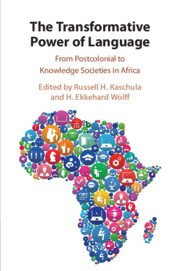This paper investigates the clash of (language) ideologies in Estonia in the post-Communist period. In an analysis of changing Western recommendations and Estonian responses during the transition of Estonia from Soviet Socialist Republic to independent state, we trace the development of the discourses on language and citizenship rights. Different conceptions of the nation-state and of how citizenship is acquired, together with different approaches to human rights, led to disagreement between Estonian political elites and the political actors attached to international institutions. In particular, the Soviet demographic legacy posed problems.
We use a context-sensitive approach that takes account of human agency, political intervention, power, and authority in the formation of (national) language ideologies and policies. We find that the complexities of cultural and contextual differences were often ignored and misunderstood by both parties and that in their exchanges the two sides appeared to subscribe to ideal philosophical positions. In the following two decades both sides repositioned themselves and appeared to accommodate to the opposing view. In deconstructing the role of political intervention pressing for social and political inclusion and in documenting the profound feeling of victimhood that remained as a legacy from the Soviet period and the bargain that was struck, we hope to contribute to a deeper understanding of the language ideological debates surrounding the post-Communist nation-(re)building process.
